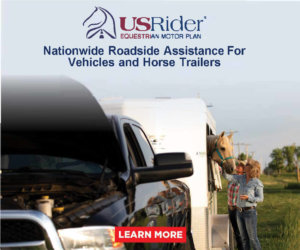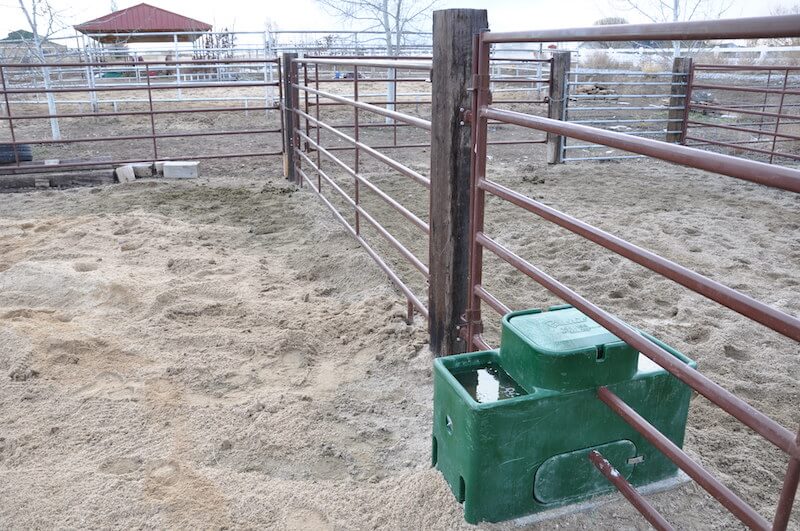Ensure Your Horse is Getting Enough of this Essential
by Alayne Blickle
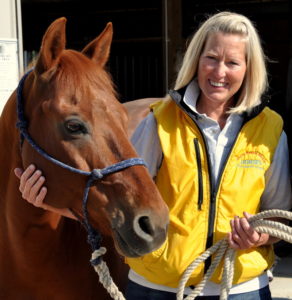
Early December is probably your last chance to set up a water supply that won’t freeze or get icy cold before Ol’ Man Winter sneaks in and catches us off guard. A horse drinks 8 to 12 gallons of water per day. Research shows horses prefer water temperatures of about 45-65 degrees and tend to drink less when water is cold. Keep in mind that research also tells us that a horse cannot get enough moisture by eating snow alone. Decreased water consumption can lead to colic so make every effort to ensure your horses are drinking an adequate amount. Avoid a frozen water supply by insulating pipes and faucets with heat tape or other insulation materials (check with your local hardware store for recommendations). If you use a hose, find a way to drain it each night so it doesn’t freeze. Read on for a few ways to manage winter water supplies for horses.
The simplest, low-tech way is on very cold days break ice in water tanks in the morning and again in the evenings. Be sure to remove the ice after breaking it so it doesn’t refreeze quickly. You can clear ice with a pool skimmer or a manure fork designated just for that purpose. If you only have one or two horses this method isn’t too taxing. A reminder: older horses or those with dental problems may not be able to drink very cold water and may require additional warming of their water. In these cases you can warm water in their stall bucket with some hot water from your teakettle each morning and night.
The next option, if you have access to electricity, is to consider getting a stock tank heater or heated stall bucket. Many nice options are available, including heated muck buckets. You can research these on the Internet or at your local feed store. A non-electrical option is an insulated bucket with a lid. These options still require daily filling with a hose, but the horse can learn to push the lid down with his nose and get a drink.
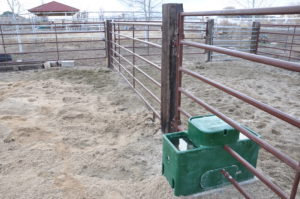
What we have opted to do at our current place, Sweet Pepper Ranch, is to install heated automatic waterers. They are a pricy investment initially and require a bit of labor to install correctly, but the pay-off is huge in chore efficiency and knowing horses having constant access to fresh water. Automatic watering systems conserve water since they only use as much water as the horse drinks. The horse health advantage is that cool, clean water is always available. Plus, the water is circulating and not stagnant so it won’t provide habitat for disease-carrying mosquitoes. We chose a design that works on geo-thermal principles of warming the water using ground temperature. That, as well as insulation, helps keep water cooler during the summer and warmer in the winter. To guard against freezing in the bitter cold months, we added electrical outlets inside the base so heaters can be installed. Our brand also has small water pans so when we regularly clean the pan we aren’t dumping many gallons of water. To save on costs we chose double pan waterers—one waterer for two paddocks.
Good luck in getting your winter water supply set up and let’s hope winter holds off just a bit longer.
To learn more about horse keeping and ways to make your horse property mud-free and chore-efficient join Alayne Blickle and Horses for Clean Water at upcoming events listed at www.horsesforcleanwater.com. Mark your calendar now for Summit on Horse Management and Climate Change: What You Can Do to Prepare, Saturday, March 8, 2014, a workshop for both agency folks and horse owners, to be available via webcasting. Stay tuned for details.
Published December 2013 Issue
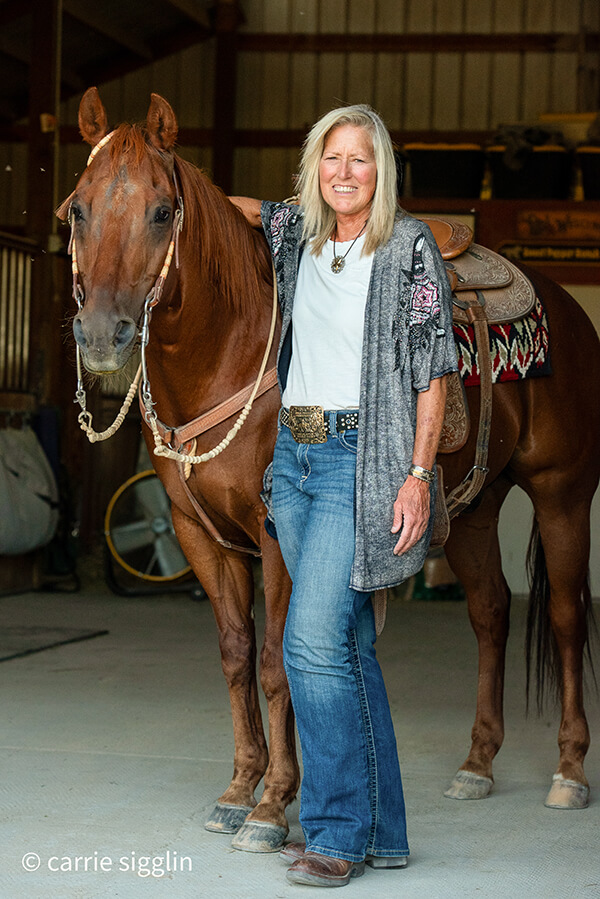
Alayne Blickle began in the 1990’s as a pioneer in water conservation and natural resources conservation by creating the entrepreneurial consulting business, Horses for Clean Water, an award-winning internationally acclaimed education program that looks for horse-healthy, nature-based solutions to land management challenges. She continues this work today partnering with agencies, organizations, and horse owners throughout North America and worldwide. She is a regularly contributing writer and photojournalist to several equine publications.
Alayne lives with her horse trainer husband, Matt Livengood, in southwestern Idaho where they raise and train AQHA horses and mustangs on their eco-friendly horse ranch. Contact her through the Horses for Clean Water website or through their ranch website Sweet Pepper Ranch.
For more information contact Alayne at [email protected] or 206-909-0225.


